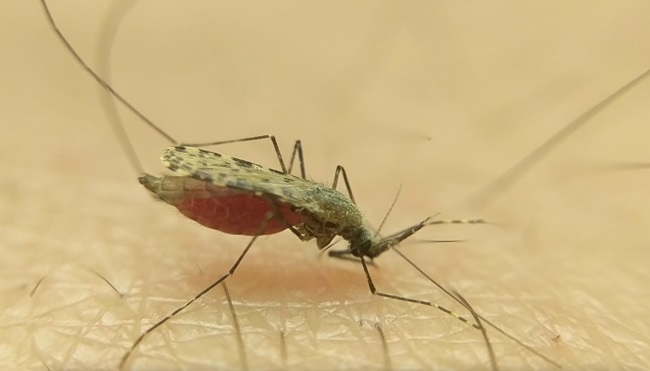New species of mosquito identified on the coast of East Africa
Published: 23 April 2025
Scientists have discovered a previously unidentified species of mosquito along the coast of Kenya and Tanzania with potential implications for malaria surveillance and control
Scientists have discovered a previously unidentified species of mosquito along the coast of Kenya and Tanzania with potential implications for malaria surveillance and control.
This newly discovered mosquito species, provisionally named the Pwani molecular form, belongs to the Anopheles gambiae complex, which is a group that includes some of the world’s most important malaria vectors.

This discovery, published in Molecular Ecology, was led by a collaboration between the University of Glasgow, the Wellcome Sanger Institute, and Ifakara Health Institute. It reveals the presence of a genetically divergent mosquito that could have profound implications for malaria vector surveillance and insecticide-based control strategies in the region.
Using genetic sequencing, researchers established that this new species – the Pwani molecular form – is restricted to the coastal parts of Tanzania and Kenya. Notably, it appears to have a unique insecticide resistance profile; and unlike other malaria vectors in the region, it appears to lack common genetic markers of resistance.
The researchers say this suggests the new species is either more vulnerable to insecticides or has developed resistance in a completely different way —something they believe urgently needs to be studied.
Currently, chemical insecticides are central to the control of disease vectors such as mosquitoes. The control of mosquitoes through insecticides helps avert millions of cases of malaria annually, a disease that continues to kill 600,000 people yearly.
Lead author Sophia Mwinyi, from the University of Glasgow and Ifakara Health Institute, said: “The discovery of the Pwani molecular form reveals gaps in our understanding of mosquito diversity in malaria-endemic areas. Its distinct insecticide profile and restricted geographical presence suggests that this mosquito species possibly plays a potential role in sustaining malaria transmission during the dry season, when other vectors are less active in these respective areas. This could also explain the continued persistent cases of malaria in these locations despite widespread use of bed nets.”
While the implications of this discovery remain to be fully understood, these findings suggest that current control approaches may likely not be able to effectively target the newly discovered Pwani mosquito.
The newly identified mosquito shows a strong genetic differentiation from other species within the Anopheles gambiae complex, suggesting it may have evolved distinct ecological or behavioural traits. While it is not yet confirmed whether the Pwani molecular form actively transmits malaria, its detection in malaria-endemic areas, alongside being within a complex with some of the most important malaria vectors in the world, makes it a potential target for investigation.
Fredros Okumu, also from the University of Glasgow and Ifakara Health Institute, said: “By using genetics, we can help stay ahead of the game in the fight against malaria. Understanding the DNA of mosquito populations helps scientists and public health officials design better interventions to stop disease transmission.”
The study, ‘Genomic analysis reveals a new cryptic taxon of malaria vectors with a distinct insecticide resistance profile in the coast of East Africa,’ calls for urgent entomological and epidemiological investigations to determine the behaviour, ecology, and vector potential of the Pwani molecular form. The study was funded by the Wellcome Trust, the Bill & Melinda Gates Foundation and UK Medical Research Council.
Enquiries: ali.howard@glasgow.ac.uk or elizabeth.mcmeekin@glasgow.ac.uk
First published: 23 April 2025

